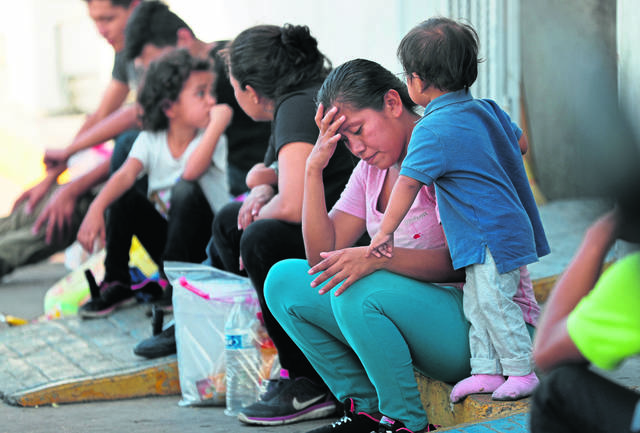No matter what happens in the headlines or the halls of Congress, the first steps in resolving America’s burning social questions have historically occurred after years of debate and disputation in our houses of worship.
The last 200 years have seen landmark deliberations ensue on slavery, temperance, evolution, LGBTQ inclusion, gender and racial equality; the eventual shifts in majority public attitude were refined and eventually defined by thousands of lectures, meetings and sermons mixed with constant prayer and protest.
For today’s congregations, immigration is the bellwether issue that may cause either irreversible division or enhanced unity in their membership.
Sister Janice Vanderneck, a Catholic nun, spoke last Sunday at First Unitarian Church in Oakland. She is founding director of Casa San José, a Pittsburgh community resource center offering services and advocacy for Latinos. Her message on the subject of immigration was simple: “In the church, no one is a stranger.”
This message, she noted, was articulated in “Strangers No Longer: Together on the Journey of Hope,” a 2003 pastoral letter from the Catholic Bishops of Mexico and the United States outlining a Catholic doctrinal response to increasing migration around the globe.
It is a message woven into the essence of the Judeo-Christian heritage, she added, in the Old Testament story of Abraham following divine command to uproot his family and go to Canaan, the first of his three cited migrations.
Other denominations have published similar announcements providing guidance to congregants grappling with one of the most fundamental precepts of all human faiths: when to be your brother’s and sister’s keeper.
It’s a question that is suddenly no longer hypothetical but impacts millions of lives at border crossings in America and throughout the world every hour of every day.
It’s a question that demands worshippers examine their own commitment to moral principles they and their faith claim to embrace — and, ultimately, take a side on how fellow humans in the throes of life-threatening journeys should be treated: as a problem to be suppressed, or as an opportunity to bring the Golden Rule maxim every faith espouses into tangible reality.
Many observers minimize the relevance of organized religion in our current society. In terms of public display and numbers of dues-paying adherents, its overt influence has certainly waned.
Yet despite the formal separation of church and state, tomorrow’s national political verdict on immigration is being shaped today by congregants like those who heard Sister Janice speak.
Americans who gather weekly in church, synagogue, temple and mosque seeking their own inspired revelation as to whether a nation dedicated to life, liberty and the pursuit of happiness should also be a nation where no one is a stranger.








